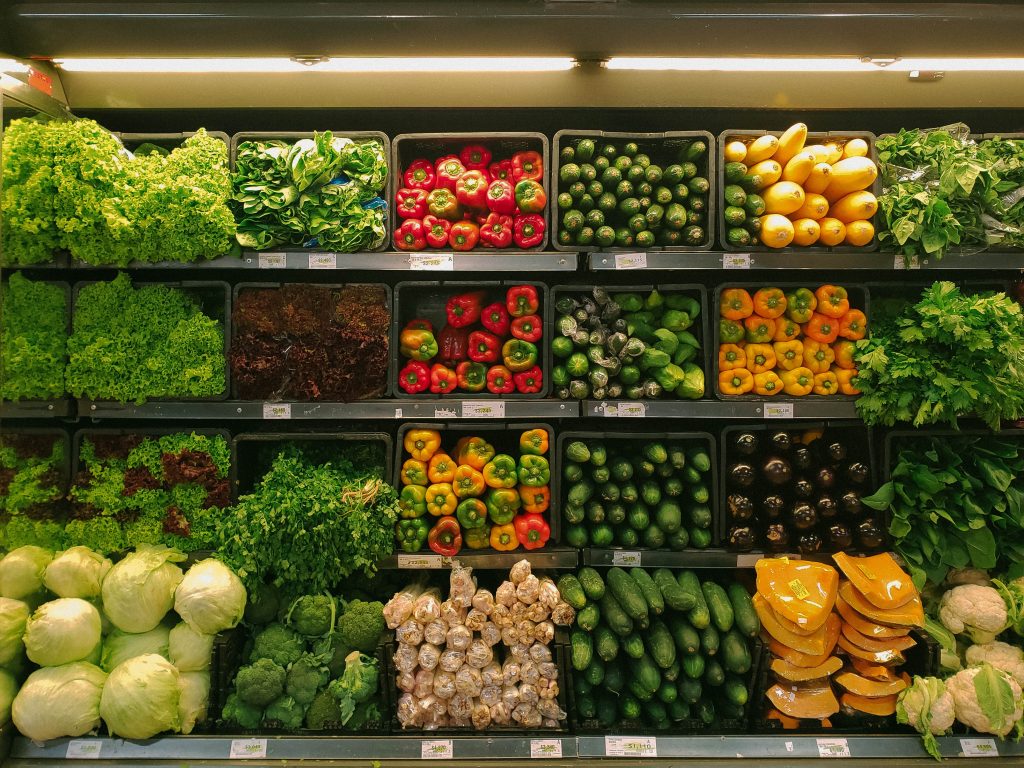
How To Save Cash While You Diet
You may already have a thorough understanding of the health benefits of losing extra weight, but have you thought about planning your diet with your financial goals in mind? When you eat a wholesome diet, you can hopefully say goodbye to some of your medical bills and higher insurance premiums.
You won’t be seeing the doctor as often when you suddenly stop getting sick and your aches and pains melt away from the additional benefits of your food. Whether you’re dealing with diabetes, high blood pressure, or high cholesterol, eating a more wholesome diet is a surefire way to keep a few extra dollars in your pocket.
Asides from the favorable aspects of your food, you shouldn’t be overspending. Walking through the grocery store during a diet can be a nightmare. You’ll see loads of delicious, healthy produce and lean meats by the time you’ve finished shopping. Unfortunately, when it comes to hitting the checkout, you’ve likely ended up seeing an additional zero at the end of the total price.
Everywhere you look, when you’re trying to lose weight, it seems like the only way to make it happen is by spending money. Everyone’s going to aim to sell you on expensive pre-made meals, a new fitness coach, or some nightmare of a cleanse diet that will make you feel ill. It would be best if you didn’t have to feel like the world’s against you in your weight-loss journey. Today we’re going to look at a handful of weight-loss ideas that might help you save money in the long-run and keep you in shape.
Stop Overeating
Sometimes we eat out of habit or because we’re stressed. Regardless, if you’re struggling with your weight, it’s highly likely that you’ve been overindulging. Sitting down at mealtime, you overate a large portion of food and didn’t consider how much food you were actually eating.
It takes time for our stomachs to tell our brains when it’s time to stop eating, and if we rush that experience or overindulge, we often overstep the natural boundaries our bodies set in place. Sometimes we’ll start feeling full, despite what is left on our plates, and we can’t spare the guilt of wasting food, so we’d better eat it, right? If your answer was anything related to the word “yes,” that answer is wrong.
When we overeat, we subject ourselves to a handful of adverse short term side effects and an even bigger list in the long-term. Here’s a glance of what overeating does to the body:
- Overeating forces your stomach to stretch past its normal limits to set to vast portions of food. A full, stretched out stomach then pushes against your body’s other organs, which might cause a great deal of discomfort and unwanted side effects. If you find that, after a large meal, you’re feeling fatigued and sloth-like or like your favorite t-shirt might burst at the seam, it’s a sign that you’ve been over-eating.
- Excessive eating doesn’t just put physical pressure on your organs; it can also cause them to work overtime. Your liver and pancreas end up producing an excessive amount of hormones and enzymes, wreaking havoc on those organs and your body.
- Heartburn, also known as GERD, is a common side effect of overeating food. When this habit becomes a part of your daily routine, your stomach is also more prone to producing an excess of acid, leaving you dealing with pain and discomfort well into your evening.
Although eating more calories than you need may feel enjoyable, it’s incredibly taxing on the body. To prevent overeating, you should practice portion-control and mindfully allow yourself to feel full and stop eating when you do.
Portion Control
Ideally, if you want to lose weight, get healthy, and save money, you can start by cooking smaller portions. When you eat less food, you’ll end up having more leftovers to cook for another day, which will prevent additional trips to the grocery store.
If you go to a restaurant, consider eating a standard portion of your food, then packing the rest up to eat at home. You should be able to create a caloric deficit and start shedding pounds, as well as make an additional meal out of your money, just with this one simple trick.
Mindfulness
There are two incredibly helpful mindful ideas to stay on top of when you’re trying to stop overeating and keep cash in your wallet. Firstly, you should listen to your body. It can be difficult at first, but with practice, you’ll start reducing your appetite.
You should also learn to take your time to slowly chew your food, enjoy its taste, and then become full. If you have leftover food on your plate, just pack it up and eat it at a later time.

Eat Whole Foods
Processed foods will kill your diet and your wallet. According to the Bureau of Labor Statistics, we eat significantly less whole foods than anything else. In particular, we’re eating fewer pork chops, chicken legs, butter, lettuce, steak, bananas, and tomatoes.
It’s been traced that we have been eating less healthy foods since 1982. In fact, the amount of money we spend on processed foods and sweets has nearly doubled from 11.6 percent to 22.9 percent, totaling above everything else we shop for in grocery stores. By simply cutting out processed foods, you can save big time and lose weight.
What are these processed foods you ask? By definition, processed food is a food that’s been altered from its original state. By a minor technicality, almost everything in a grocery store is processed food. Even the corn you’ll find around produce aisle shelves in the summertime has undergone a few additional steps before popping up in your local grocery store.
As we talk about processed foods, we’re usually just referring to boxed or bagged foods, like instant dinners or bags of potato chips. Another way of thinking about it is it’s the exact opposite of whole food. Whole food only contains one ingredient. Fruits, vegetables, milk, and meat are all whole foods that you can easily work into your diet.
Downside of Eating Processed Foods
Those potato chips you enjoy and easy to cook meals you’ve been having since you were a kid might be the primary culprit behind your health problems and your weight. Processed foods can be addictive and may increase your risk of cancer, diabetes, and high blood pressure, and the extra handful of artificial ingredients in them can come with unwanted adverse effects.
Just by buying less processed foods, you’ll end up cooking more healthy meals at home and slash the majority of your needless spending at the grocery store. You can even do a little bit of food prep and freeze your pre-prepared meals without harming yourself with unwanted additives.
Bulk Up on Protein and Fiber
Something we often neglect is the bulk aisle at the grocery store. In the next aisle, you’ll find all of the same items in boxes and cans at twice the price. The next best tip to limit your spending and eat healthier whole foods is to buy dried beans and grains from the bulk aisle.
Dried chickpeas, lentils, and an endless variety of beans are a cheap way to efficiently add a massive punch of protein to your daily dieting habits without consuming too many calories. A single serving of lentils contains an entire 19 grams of protein, which can keep you full and feeling energetic for almost a whole day. Additionally, by buying in bulk, you gain access to an abundance of dried fruit, which can be a healthy fiber-rich alternative to any of the sweets that you might miss during your diet.
Bulk items often go on sale, so keep your eyes peeled for spectacular deals on simple, nutritious meals.

Grow It Yourself
If you have the space to grow some vegetables, you can easily save hundreds, if not thousands, of dollars per year on produce. Most veggies can easily be grown in small pots in the comfort of your backyard or on your patio, and they’ll provide you with enough, crisp, crunchy, and nutritious vegetables all summer long.
As early as springtime or the late winter, you can begin growing a near-year’s supply of potatoes, onions, garlic. How about some delicious summer vegetables? As long as you keep them watered, you can grow peas, radishes, lettuce, beans, and tomatoes. Whatever you don’t plan on eating after harvest, you can quickly chop up and store for a few months. If done effectively, you can avoid shopping for entire seasons.
A massive upside to growing your vegetables is that they taste better, are denser in nutrients, and aren’t riddled with pesticides or scary fertilizers. What comes out of your garden will be incredibly fresh, and it’s free.
Skip the Splurge
This paycheck you may have put in overtime to have some extra spending money over the weekend. Some of us have bad spending habits that lead us into an out of control eating binge; for others, they might habitually buy a new trinket or clothing item. Regardless, just because you have the extra money to spend on food, it doesn’t mean that you should.
Instead of heading straight to your favorite restaurant or buying your favorite sweets to munch on, keep your weight-loss and financial goals in mind. If you can keep track of your goals every payday, you should be able to cut calories and save money in the bank effectively.
Budget Tracking, Groceries, and Meal Planning
An effective strategy to keep yourself from spending too much money on groceries is to create a budget plan. Start by thinking about how much you’re willing to spend on groceries this month, and make sure it works into your overall budget for the month, as it allows you to save some money. Next, write out a list of groceries with their estimated cost, be sure to keep everything healthy, and your total shouldn’t be too high.
The next stage in planning is meal preparation. If you can plan out a weekly or monthly budget worth of meals, you can save a lot of your time and energy without breaking the bank. For the cost of a pack of chicken, a small bag of rice, and a few vegetables, you can potentially afford to eat for a week for less than $20.
The next part is holding yourself accountable to stick to that budget. You might want to try withdrawing the cash that you’re going to spend on groceries and setting it aside with your shopping list.
Another strategy is to put your money in a savings account where there might be a penalty for withdrawing or spending. This way, if you break your budget, there will be apparent consequences. If you’re lucky, the produce and bulk items that you plan on buying will be on sale, and you’ll have extra money to add to your savings account at the end of the month.
Rewards
Almost every grocery store has a variety of reward points. If you feel you’re ready for the responsibility, you might want to consider signing up for a credit card that rewards your spending. If you stuck to a healthy diet and budgeted correctly, you’ve already saved loads of money and could potentially reward yourself with the freebies that come along with a points system.
You could use the air miles or gift cards, but you deserve to treat yourself the luxury of travel during your yearly vacation time. Being able to travel at no expense is a great way to reduce stress and lose even more weight in the process.
Save Big online
It would seem there’s an app for everything. At the moment, there’s a growing number of impressive online retailers for you to buy groceries from. Add everything you need to your online shopping cart, and the fresh groceries will be delivered right to your door. In combination with an online coupon finder and some of the big sales that these websites have on groceries, you can save more than 50 percent on some of your purchases.

Coupons
While there might not always be a coupon for the wealth of your purchases that you plan on making, you should be able to find a few coupons lying around in your local flyer or inserts. With the prevalence of everything being online, you can easily access the coupon insert for most major grocery retailers in North America. These online copies will still carry the same coupons you’d find in the mail, so it might be a good idea to double up with an app. You can also find grocery stores that send out weekly to monthly coupons to your homes and keep you updated on new sales as well.
Flash-Frozen Fruits and Vegetables
When frozen fruits and vegetables are in season, they will often end up on sale. Frozen produce is equally as nutritious cheap, and it’s available year-round in large bags. Frozen fruits and vegetables might be an excellent alternative for people for those who can’t seem to remember to use the fresh produce in their refrigerators before ultimately throwing it out. Statistics show that 50 percent of home food waste is still-edible produce.
Make It Yourself
For thousands of years, humans have been able to bake bread. Although it may seem time-consuming, baking your own fresh sour-dough or multigrain bread at home is incredibly easy, and you’ll get more than your money’s worth out of a bag of flour and a bit of yeast.
A few easy ideas that you can make yourself to save cash are granola, trail mix, pesto, jam, peanut butter, pickles, dips, and herb-infused oils. When you get to the checkout of your grocery store with any of these items in-hand, you’re probably going to end up spending more than double the cost of the ingredients than if you’d make them yourself.
Return Your Recyclables
We all keep canned food around somewhere, even healthier items like canned fruits, vegetables, or sparkling waters. When you check these items out at the grocery store, you’ll often notice that there’s usually a small deposit fee on each of these items. Depending on where you live, you might be able to return these items to the store or to a recycling center to be refunded on that extra cost you had previously spent.
You can even get a little bit of extra exercise by returning recyclables. Parks and trails are often littered with an obscene smattering of soda bottles and cans in popular hangout areas. You can do your part to help the Earth, get exercise, and even make a bit of money by collecting these items in fun scenic places.



